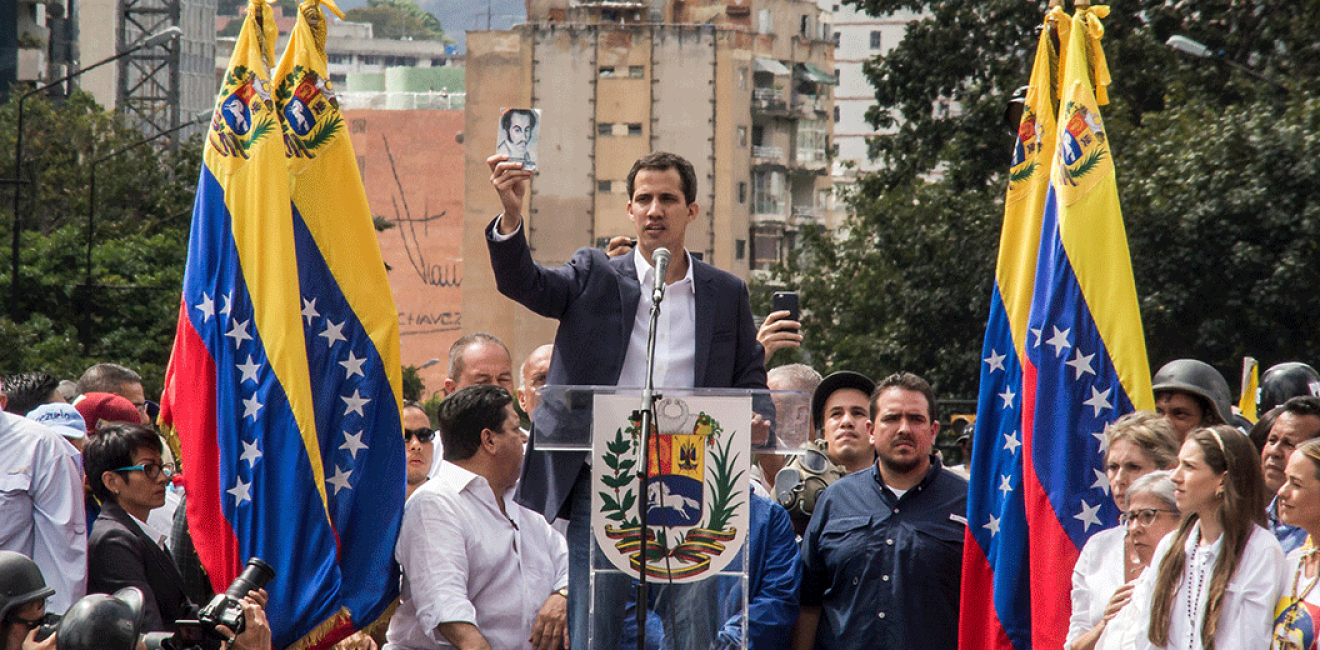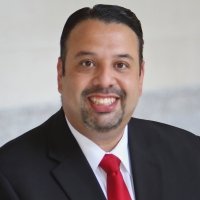In Recognition of Juan Guaido's Courageousness
This op-ed was originally published in Spanish in El Nuevo Herald.
This op-ed was originally published in Spanish in El Nuevo Herald.

As a new chapter in Venezuela’s tortured history begins after the dismantling of the Interim Government, it’s worth paying tribute to the sheer tenacity, courage, and leadership of Juan Guaido.
In 2019, Venezuela’s National Assembly — the country’s only democratically-elected body — took the bold step of invoking Article 233 of the constitution. This provision made the President of the National Assembly the interim President of the Republic because there was a vacuum of power after the sham presidential elections of 2018. The United States, European Union and dozens of responsible countries around the world joined millions of Venezuelans and its opposition in also not accepting the fraudulent results of the election and recognizing Juan Guaido as the Interim President.
Since becoming Interim President, Guaido was briefly kidnapped, his vehicle was repeatedly attacked and he was assaulted multiple times. His home was raided by Nicolas Maduro’s guards and his family was threatened over and over again. His closest advisors — Roberto Marrero and Sergio Vergara — were kidnapped and imprisoned by Maduro’s forces. His uncle Juan Jose Marquez was arrested under bogus charges. Others were also unjustly arrested, detained, often tortured while in detention, or forced into exile.
Despite all of that, all of the thuggery that Maduro and his criminal enterprise – disguised as government - could muster, Juan Guaido never fled the country or renounced his post. Instead, he did his best to advocate for his people and respond to their suffering and yearning for freedom.
When we arrived at the US Agency for International Development (USAID) in 2017, Venezuela was one of the most urgent humanitarian crises we faced. Millions of Venezuelans had already begun fleeing Maduro’s tyranny and mismanagement — which became the largest single mass migration event in the history of the Americas and presently the second largest external displacement crisis in the world.
Our task was a difficult one. We would not provide assistance through the Maduro regime. Not only was it blatantly corrupt, but it often used foreign assistance to reward political supporters and punish opponents.
Then came Juan Guaido. With bipartisan congressional support, we were able to collaborate with his interim government and the rest of the G4 political party coalition of Acción Democrática, Primero Justicia, Un Nuevo Tiempo, and Voluntad Popular.
While employing strict oversight measures, we were able to work with these leaders to support human rights defenders, independent media, and civil society organizations inside of Venezuela. We provided technical support to the democratically-elected National Assembly. We helped mitigate the spread of malaria (which only returned to the country when the health care system collapsed and a surge of illegal mining operations under Maduro), and worked through NGOs to provide some semblance of basic health services.
Thanks to the growing commitment we had in Guaido and his coalition partners, in October 2019, USAID was able to sign a Development Objective Agreement, or a DOAG, with Venezuela — the first bilateral agreement signed between the US and Venezuela in over 65 years. By the end of 2020, USAID – not the Interim Government led by Guaido - had administered more than $1.2 billion in humanitarian and development assistance to alleviate the suffering of Venezuelans inside and outside of the country as well as communities hosting them. Thanks to Juan Guaido, our work also opened the door for UN organizations, such as the World Food Program and UNICEF, to operate in Venezuela in a neutral and impartial manner.
In 2020, Guaido visited former UK Prime Minister Boris Johnson, French President Emmanuel Macron, and Canadian Prime Minister Justin Trudeau. His travels culminated with an Oval Office visit with President Donald Trump. In that year’s State of the Union address, Members of Congress from both political parties gave Guaido a standing ovation to symbolize the US commitment to him, his cause, and for all of Venezuela.
With Maduro and his brutal regime emboldened by concessions, it’s hard not to worry that the welfare of the Venezuelan people will once again take a back seat to Maduro’s drive for legitimacy, power and an economic lifeline.
It is important to remember that it was the dictator Maduro himself who long blocked humanitarian assistance by first denying that the crisis even existed and then through his demands that he be able to control and essentially weaponize it to reward supporters and punish rivals. With this new proposed NGO law, it is Maduro who is copying what Beijing and Moscow have already done to essentially criminalize support for NGOs and civil society.
It’s certainly true that Juan Guaido and the broader Venezuelan opposition coalition have been unable to restore true representative democracy and rule of law to that country – which is no easy task. And it’s true that not all of the opposition was unified behind Guaido and his approach. But that doesn’t diminish either Guaido’s legacy of personal and political courage or his vision for a Venezuela worthy of its people.
It’s indisputable: history should look on Guaido favorably as someone who, despite the threats to his own life, stepped up against a brutal and ruthless tyrant who has been kept in power largely with the support of Cuba, Nicaragua, Russia, Iran and China.
Ambassador Mark Green, president and CEO of the Woodrow Wilson International Center for Scholars, served as USAID administrator from 2017-2020 and U.S. ambassador to Tanzania from mid-2007 to early 2009. Before that, he served four terms in the U.S. House of Representatives representing Wisconsin’s 8th District.
Eddy Acevedo is chief of staff and senior adviser to Ambassador Mark Green, president and CEO of the Woodrow Wilson International Center for Scholars. He was formerly the national security adviser at the U.S. Agency for International Development and senior foreign policy advisor for former Rep. Ileana Ros-Lehtinen (R-FL.).
This opinion is solely that of the authors and does not represent the views of the Wilson Center.




